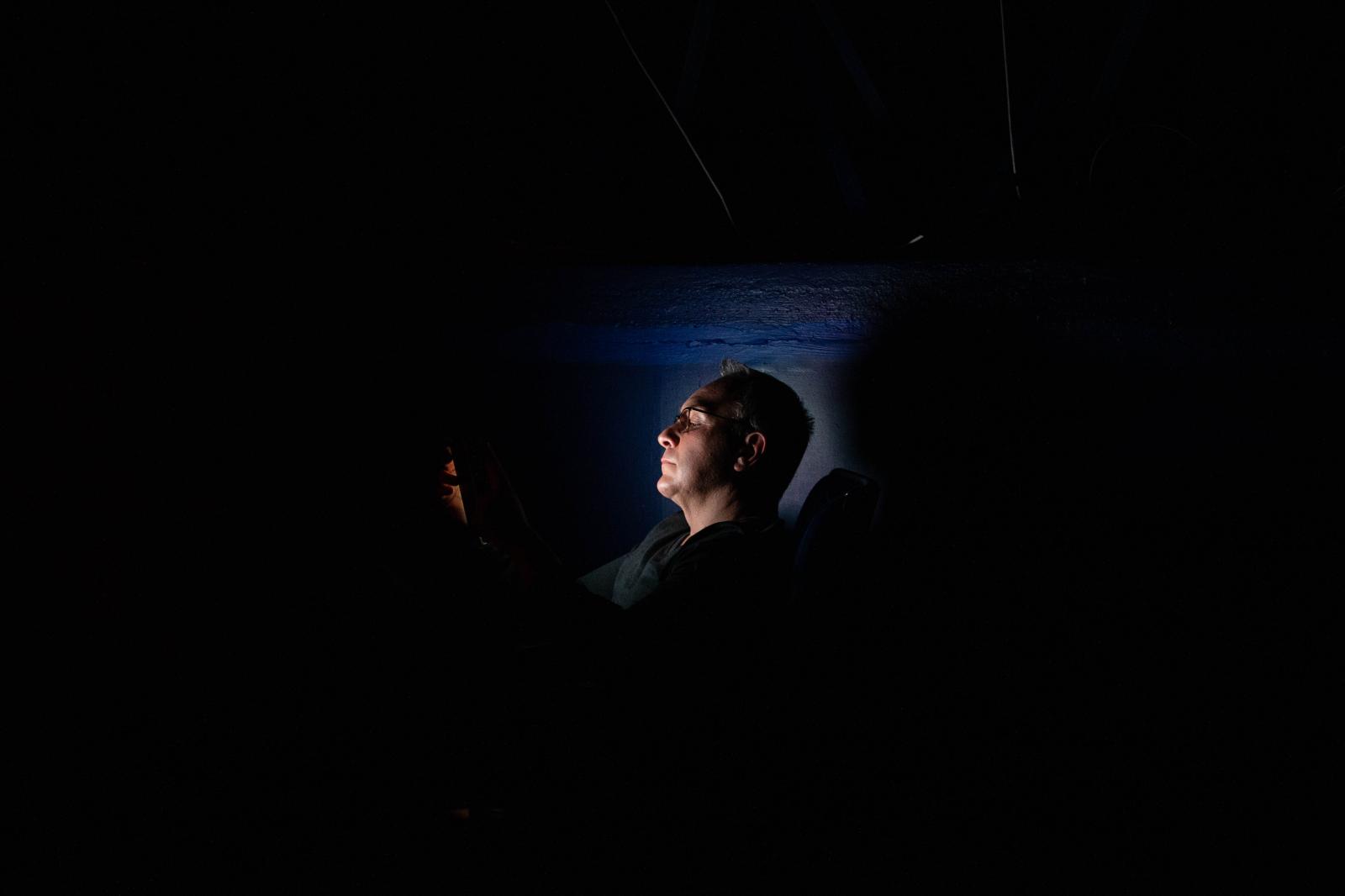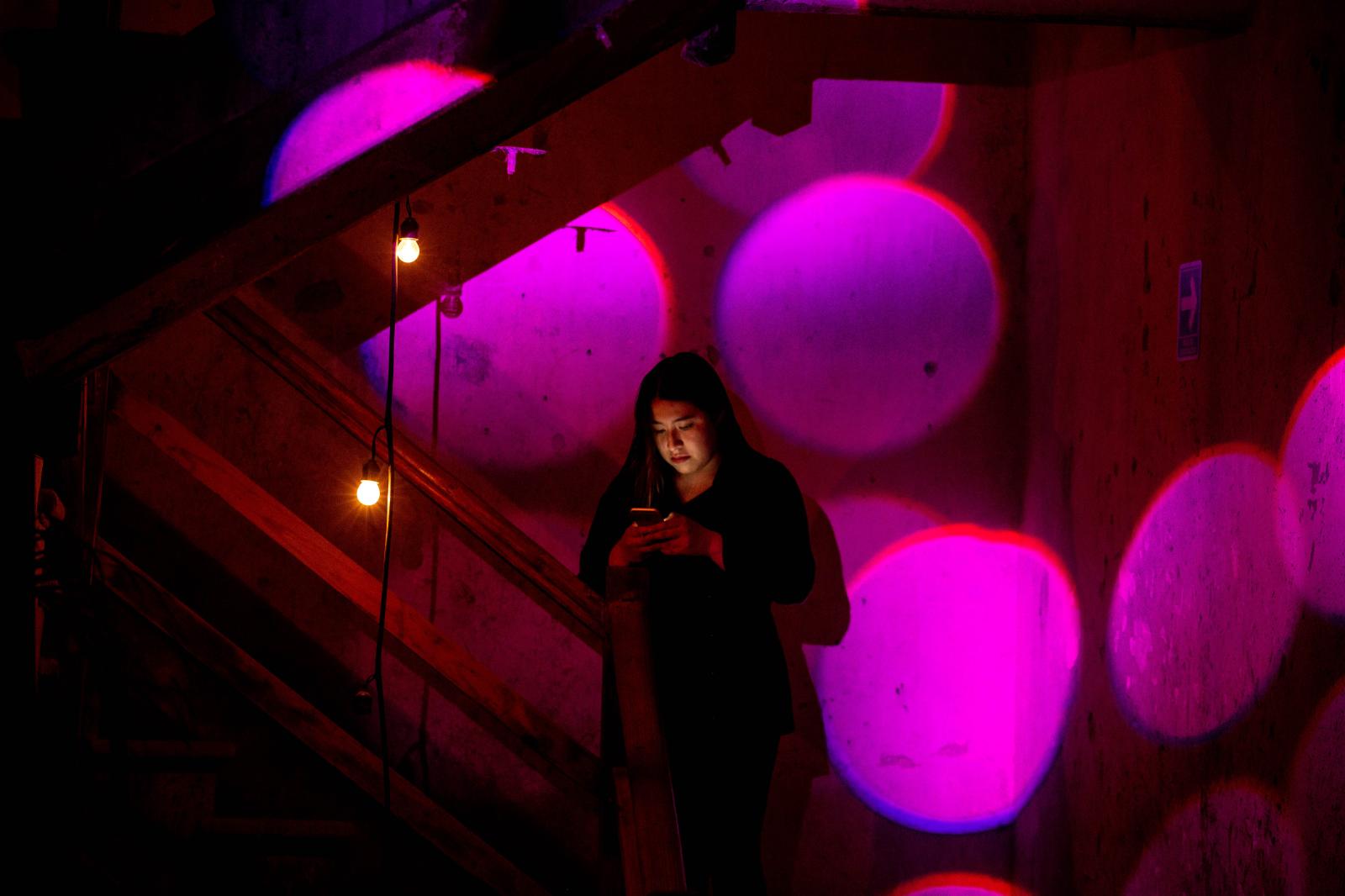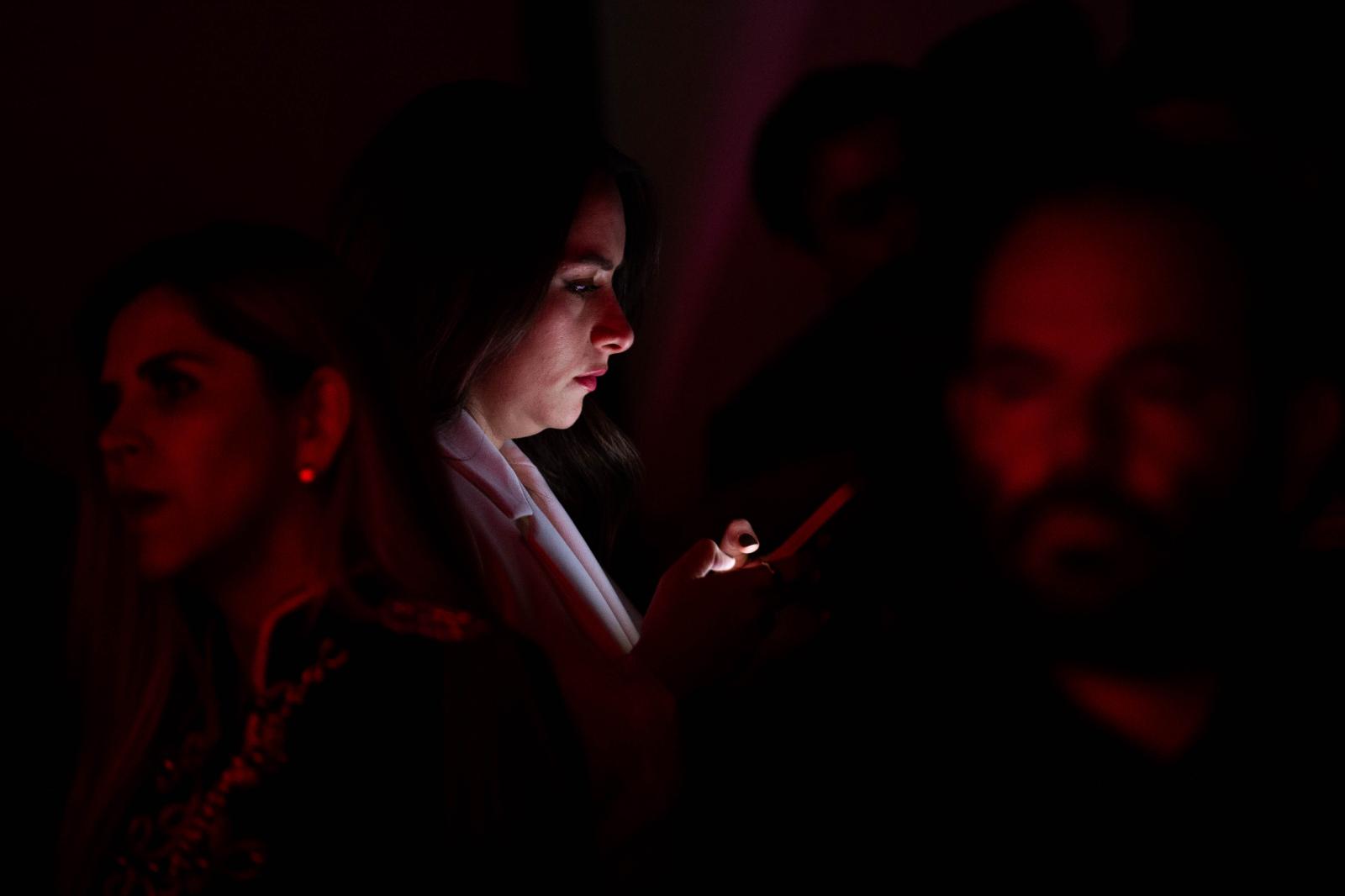Public Project
The new drug.
According to research by the American Addiction Center, in 2024 there were more than 6.8 billion smartphone users worldwide, and within this population category, 6.3% are addicted to their phones.
Mobile devices offer us all kinds of immediate products, delivered through algorithms that we ourselves feed with our constant interests by interacting on social media. Byung-Chul Han mentions in his book The Crisis of Narrative: “Today we are more informed than ever, but we are completely disoriented. Furthermore, information fragments time and reduces it to a mere succession of present moments.”
Han says: “Today, we are bewildered by the intoxication of information and communication. And yet, we no longer dominate communication, but rather place ourselves at the mercy of an accelerated exchange of information that is beyond our conscious control. Communication is increasingly controlled from outside. It seems to obey an automatic, machine-like process controlled by algorithms, of which, however, we are no longer aware. We are at the mercy of the algorithmic black box. People are reduced to data sets, which can be manipulated and exploited.”
We've lost immediate attention due to the immediacy offered by technology. We can't afford to watch a show without using our mobile devices; my task was to observe that in movie theaters, plays, or concerts, we can't take our eyes off what's next to a screen that illuminates us in the darkness.
We have to report every step, every event, what we eat, how we feel, every moment of our lives that we consider interesting or not. To be, to belong, and to gain validation. Byung-Chul Han mentions: “Time is reduced to the narrow path of the present. It lacks temporal breadth and depth. The pressure to actualize destabilizes life. The past no longer impacts the present. The future is reduced to a permanent actualization of the present. In this way, we exist without history, for narrative is a story. We lose not only experiences as synthesized time, but also narratives of the future as time that hatches. Life that moves from one present to the next, that stumbles from one crisis to the next, from one problem to the next, degenerates into mere survival. Living is more than solving problems.”
Juan Villoro says in his book "I Am Not a Robot": "Cybernauts make impulsive proposals and demand instant gratification: if they don't find an answer, they don't try to resolve the issue on their own, they look for another application. The anxiety of having quick solutions leads to neglecting their own resources.
In the Middle Ages, theologians practiced slow scholasticism while the faithful patiently awaited illuminations or miracles. In the new dark age, ruled by haste, digital apparitions are received with the same passivity with which church sermons were accepted. Like God, the operating system is irrefutable and arbitrary."
We are dominated by the "here I am" mentality; we have to show our social environment what we do and why we do it. For Christian Salmon, the great stories of history, from Homer to Shakespeare, which conveyed lessons of wisdom gleaned from experience, gave way to storytelling, which saturates reality with artificial narratives, blocks dialogic exchanges and, with the universalization of networks, distances us from stories to impose exchanges of anecdotal stories that encourage communicative confrontation and thus weaken confidence in the referential value of language.
Currently, there are events where the use of mobile devices is prohibited in order to encourage the experience of delighting in the event before our eyes. We have prevented ourselves from developing our other senses in the face of a spectacle, limiting ourselves to preserving a brief moment offered by the exposure time of a social network.
Lola López Mondéjar tells us in her book entitled Without Story: “…in our accelerated societies of digital capitalism and surveillance, there is a profound difficulty in capturing experience…” “…This connective generation is undergoing a profound anthropological mutation due to the transformation imposed by digital technology (the Internet). When we move from the alphabetic and sequential form of language to the simultaneous and electronic, digital form, critical thinking disappears, as the acceleration of the infosphere and the extreme intensification of the rhythm of nervous stimulation it produces saturate attention and, consequently, deactivate critical capacity.”
Mondéjar mentions, “Digital devices devour half of our available mental time. The computational society in which we are all immersed since the widespread use of the internet produces in most of us feelings of anguish, frustration, helplessness, and anger, the social effects of which can include populism, burnout, or exclusion. We often remain powerless in the face of online forms generated by black boxes (so-called dark algorithms) perceived as inhuman, and which only an elite can control for their own benefit, so that we become a product of large platforms… Digital screens modify our attention span by causing us to jump from one thing to another, allowing ourselves to be carried away by external proposals and forgetting our original objective. They diminish our ability to concentrate and our tolerance for boredom, so that we increasingly become misdirected, externalized, directed by others, and gradually suppress our interiority, which is depleted of our own thoughts and emotions.”
Gabriela Nguyen, 24, is a master's student in Education Policy and Analysis at Harvard University. She grew up in the digital age with an iPod touch in her hands. Now she's the founder of "Appstinence," a mobile device abstinence project at Harvard. Nguyen has broken away from social media and doesn't use a smartphone; she uses a phone without internet access, and according to Wired, "has rediscovered the pleasure of an offline life, made up of direct relationships, sustained attention, and mental freedom."
997

























